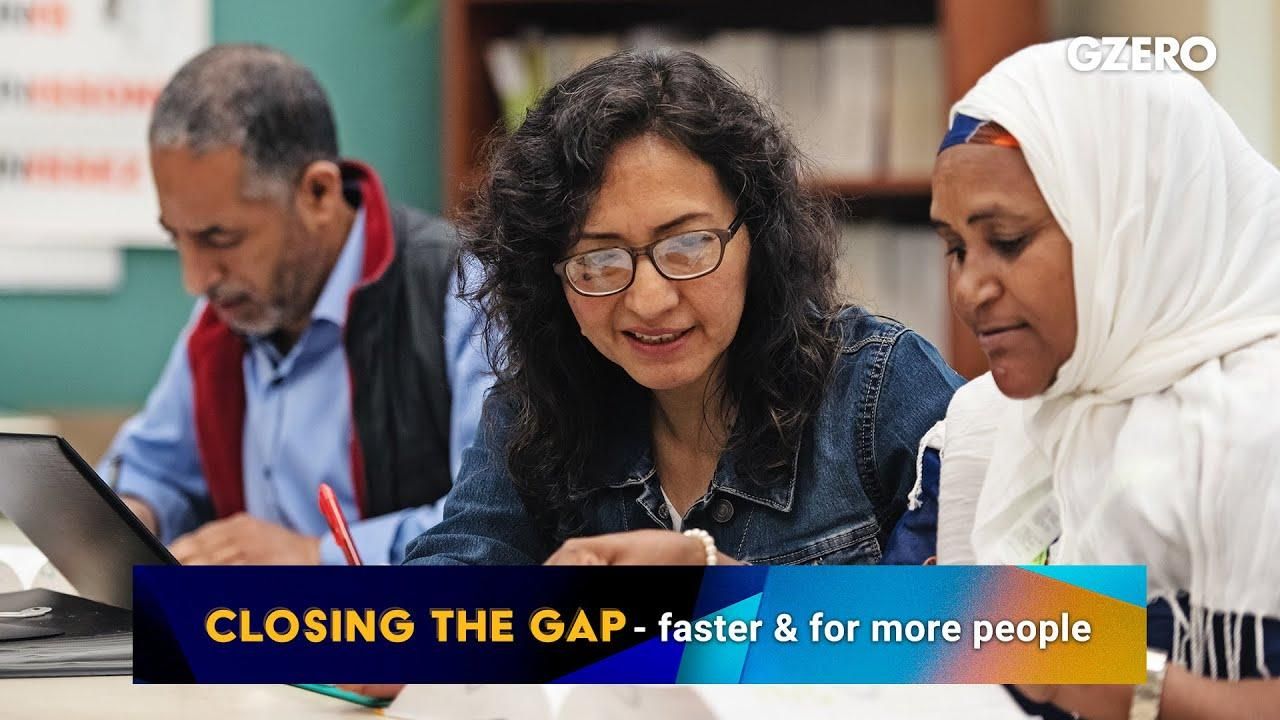Closing the Gap
Adapting to a digital economy around the world

Adapting To A Digital Economy Around The World | Economic Empowerment | GZERO Media

In the next decade, 70% of new value in the global economy will come from digital businesses. But more than 3.5 billion people without internet access will be cut off, and not all of them will live in the developing world.
“This is very much a global challenge,” Eurasia Group senior analyst Ali Wyne says in a livestream conversation hosted by GZERO in partnership with Visa.
Much of the developing world went digital during the pandemic. We see this, for instance: in Nepal, where it pushed people to go cashless and women in rural areas to embrace digital banking. Yet many remain unbanked, and that means they struggle to create wealth because they only deal in cash, according to Visa's Rubén Salazar. Having no bank account also makes it harder to send remittances, as we learn from a Mexican recipient and from the World Bank's Dilip Ratha.
There is hope, though. For Nextrade's Kati Suominen, digital payments are helping small businesses around the world reach new markets. The global move toward online shopping is a huge opportunity to scale, adds PayPal's Usman Ahmed.
In short, digital adoption faces many challenges but also huge opportunities to make things better for those who have the least.
Watch our recent livestream discussion on remittances and other tools for economic empowerment.
Xi Jinping has spent three years gutting his own military leadership. Five of the seven members of the Central Military Commission – China's supreme military authority – have been purged since 2023, all of whom were handpicked by Xi himself back in 2022.
In this episode of GZERO Europe, Carl Bildt examines how an eventful week in Davos further strained transatlantic relations and reignited tensions over Greenland.
In this episode of "ask ian," Ian Bremmer breaks down the growing rift between the US and Canada, calling it “permanent damage” to one of the world’s closest alliances.
For China, hitting its annual growth target is as much a political victory as an economic one. It is proof that Beijing can weather slowing global demand, a slumping housing sector, and mounting pressure from Washington.